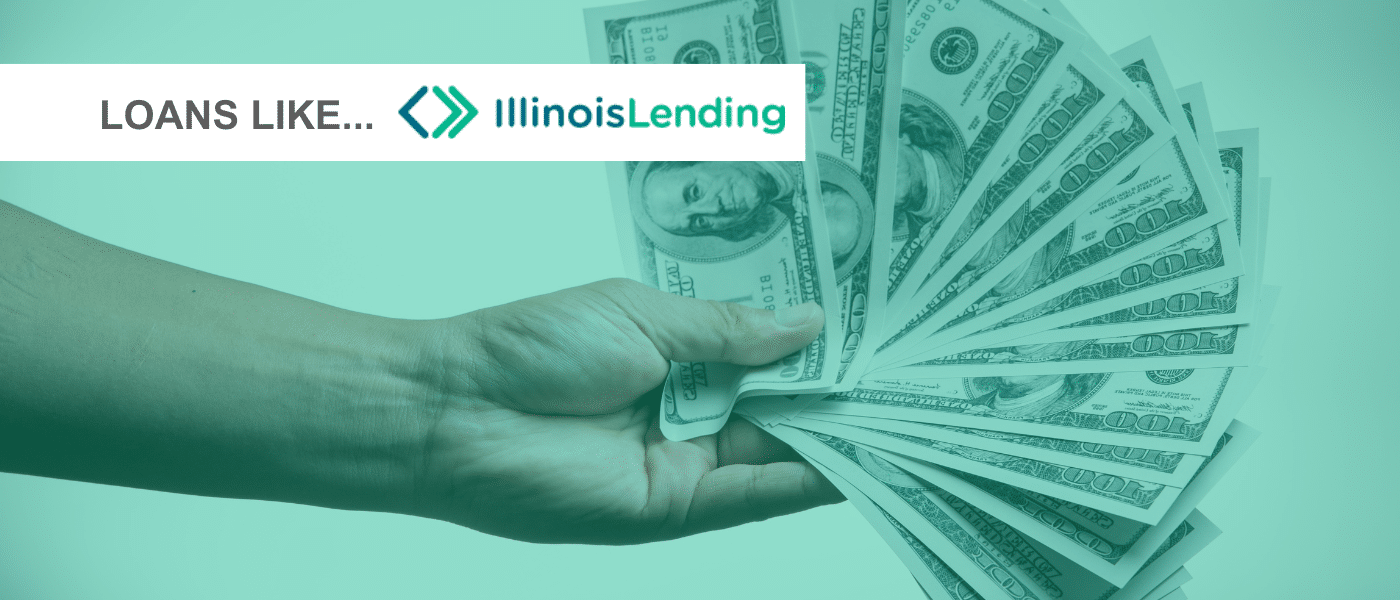Being self-employed means you work as an independent contractor or sole proprietor.1 There is unique financial freedom in self-employment and gig work. You have control over your schedule and workload, don’t have to worry about sick leave, and are essentially your own boss.
But suppose you don’t have a regular income deposited into your bank account every two weeks. In that case, a loan can be a helpful tool in taking care of unexpected expenses until you get paid again.
But what kind of lender is best for gig workers? Take a look at the different types of loans for gig workers, and decide which one is best for you!
Benefits of Taking Out a Loan
A loan can provide instant cash for emergencies when the gig economy is slow. However, there are additional benefits that you can receive by taking out specific types of loans. Learn what perks you can expect from various loan options below.
| Type of Loan | Benefits | Best For |
| Personal Loans | – Lower interest rates – Fixed repayment schedule – Can improve credit if managed well | Workers with good credit and a need for a larger sum of money |
| Payday Loans | – Quick access to cash – No credit check – Short-term solution | Workers who need immediate cash for emergencies but can repay quickly |
| Cash Advances (from Apps) | – Instant access to earned wages – Low or no fees – No credit check | Workers with irregular income who need immediate access to cash |
| Peer-to-Peer Loans | – Fixed interest rates – Flexible terms – Community-based lending | Workers who prefer a more personalized approach to lending |
| Merchant Cash Advances | – Quick approval – Repayment based on future sales – No need for excellent credit | Small business owners in the gig economy who need quick cash for business expenses |
| Credit Union Loans | – Lower interest rates – Member benefits like financial education – More personalized service | Workers who are members of a credit union or are willing to become members |
Where Can I Find Loans for Gig Workers?
Independent contractors can find loans online or in person. The only difference is that online loans are easier to compare and do not usually require documents. Take a look at your options below for finding a loan.
- Online — Consumers can find loans online, as most financial institutions have secure websites that allow online applications.
- In-Person — Some lenders, such as banks and credit unions, have branch locations. Loan applicants can expect to speak with an agent and provide physical documents, such as a photo ID and proof of residence.
- Mobile App — Many financial institutions have mobile apps on the Apple App Store and Google Play Store. Loan apps allow users to apply for funding and manage their accounts.
Where Can I Get the Best Rates for Loans?
Your creditworthiness affects the interest rate you can get on a loan. But you may ask, “Why is a credit score important?” Credit scores tell a lender how much of a credit risk you are and how likely you are to meet the expectations of a loan agreement.
Credit scores fall into 5 rating categories, as shown below:
- Poor — 300-579
- Fair — 580-669
- Good — 670-739
- Very Good — 740-799
- Excellent — 800-850
If you want to get the best rate on a loan, your credit should be excellent. An excellent score exceeds 800 points, but you may only need 670 points for a decent rate.
Where Can I Get the Most Flexible Loans?
Getting a flexible loan involves researching different loan options to find repayment terms that suit your financial situation.
Suppose you have limited income and need a small business loan to cover business expenses. The best flexible loan for you would provide a long repayment plan, making your monthly payments smaller and more manageable.
When you are exploring your loan options, consider what type of repayment terms you want and how much you can afford to pay.
What Kinds of Loans Are Available for Gig Workers?
Many kinds of lenders and loan products provide independent workers with plenty of financing options. Instead of asking a family member for money, here are some loan options self-employed workers may consider when they need funds.
Business Cash Advance for Entrepreneurs
Small business owners may be able to utilize a business cash advance if they need extra money for their own business. Large and small business owners can take out a special kind of cash advance specifically for businesses when there isn’t enough business income to cover necessary expenses. While you cannot use a business cash advance on personal expenses, you may use it for payroll, client expenses, or anything directly related to your business.
Credit Card Cash Advance
You may consider a credit card cash advance if you have expenses outside of basic business needs. A cash advance on a credit card allows you to obtain cash for personal or business needs! However, remember that interest rates on a credit card cash advance may be a bit higher than regular credit card purchases. So, unless you have the ability to repay your credit card balance fairly quickly, you may not want to utilize this kind of cash advance.
Payday Loan
If you have a less-than-perfect credit history, you may be familiar with payday loans, also known as cash advance loans. A payday loan is a kind of funding marketed towards individuals looking for quick cash until their next paycheck. Payday loans also have incredibly high-interest rates, making them a problematic loan option. Unless you can pay off your loan balance in two weeks or less, you probably wouldn’t want to get a payday loan.
Personal Loan
A personal loan is a type of installment loan that can give people of all credit types access to money. With benefits like a simple application process, flexible payment schedule, and competitive interest rates, personal loans are a popular option for people looking for quick, affordable funding.
How Can Gig Workers Qualify for a Loan?
Most lenders will deem gig workers eligible for a loan as long as they meet a few simple requirements and turn in several documents.
Here are a few documents lenders will ask for before they can approve you for a loan:
- Government-issued photo ID
- Proof of residency
- Proof of income
- Bank account info and social security number
- A few references
Along with requesting the above documents, lenders will also have a look into your credit and financial history. Lenders look into credit history mainly to confirm the applicant has provided correct information and is not currently going through pre-bankruptcy counseling or the general bankruptcy process.
How Can Independent Contractors Prove Income for a Loan?
When going through the loan process, lenders will typically ask for proof of income. The most common document borrowers use to prove their income is a pay stub from an employer.
However, self-employed individuals and independent contractors working in the gig economy workforce do not always receive pay stubs. If you are a self-employed person doing contract work, you may be wondering what kind of documentation you could use to prove your income for a loan.
Here are some documents self-employed workers can use as proof of income for loans:
Bank Account Statements
Instead of a paystub, self-employed workers can provide bank statements to prove their income. Simply contact your bank or use your online account to view your deposit and withdrawal history. From there, you show lenders the payments you receive from your gig work to prove that you have a regular income coming in.
Tax Documents
Alternatively, you may use a tax form instead of a bank statement to prove your income. Contractors will typically fill out a 1099-NEC tax form before starting their work. At the end of each year, this tax document will show the total money earned, or the gross income, brought in by a specific contract job or gig.
What Kind of Credit Score Do Gig Workers Need for a Loan?
Your credit score will undoubtedly affect the loan type and loan details you may be eligible for as a gig worker. Credit reporting agencies take note of certain financial activities to determine your FICO score and credit report. Lenders and other financial institutions will then use those reports to determine if you qualify for their loan product or other financial services.
The credit score algorithm credit bureaus use when compiling a report includes activity and behavior like:
- Whether you’re on time with your bills and payments
- How long you’ve had an open and active credit account
- Type of credit accounts you have
- How often do you apply for new credit
- Your debt-to-income ratio
If you work in the gig economy, have consistent income coming in, and stay on top of your due bills, credit bureaus and lenders will positively view those habits. Lenders are more likely to approve you for a loan if you have high or fair credit. Certain loan products, like online installment loans, offer options for individuals with good or bad credit.
Thankfully, there are plenty of loan choices available. You don’t need a traditional nine-to-five job to qualify for affordable funding when you need it!
Financial Planning Tips
Financial planning can help a consumer achieve financial goals, save money, and improve their day-to-day life. While financial planning takes effort, anyone can take steps toward improving their personal finance.
These are some financial planning tips for independent contractors:
- Track your recurring income and expenses
- Start an emergency fund
- Keep track of potential tax deductions
- Prioritize repaying outstanding debt
- Avoid accumulating high-interest debt
- Shop around for a health insurance plan
Frequently Asked Questions About Loans for Gig Workers
Gig workers can apply for cash advances or loans through various online platforms, traditional banks, or cash advance apps. The application process usually involves filling out an online form and submitting required documents like proof of income and a government-issued ID.
Repayment terms can vary depending on the type of loan or cash advance. When it comes to a merchant cash advance, repayment is often tied to future profits. Personal loans might offer a fixed monthly repayment schedule. Always read the terms carefully to understand any hidden fees.
The amount independent workers can borrow depends on various factors like income, credit score, and the type of loan. A cash advance may have higher fees, while a merchant cash advance might require a percentage of future profits. Always check for hidden fees before finalizing the loan.
High interest rates and unexpected fees are common risks. Defaulting on a loan can negatively impact your credit score and result in additional fees. Alternatively, independent workers might consider cash advance apps offering lower fees and more flexible repayment terms.
Gig workers can explore loan options, such as a merchant cash advance, which is tied to future sales, or use cash advance apps that offer short-term funding with lower fees. These can be good alternatives for covering business costs without the need for a traditional loan.
Yes, cash advance apps cater specifically to self-employed workers, offering features like instant access to earned wages, low fees, and flexible repayment options based on your checking account activity.
Eligibility is usually determined by the lending institution, which could be a bank, an online lender, or a cash advance app. They assess factors like income, FICO score, and checking account activity to determine eligibility.
CreditNinja: The Bottom Line on Loans for Gig Workers
About 16.2 million people are self-employed in the United States.2 If you’re a gig worker needing emergency cash, rest easy knowing several financing options are available. But finding the right one is about asking questions and comparing lenders.
At CreditNinja, we offer personal loans for unexpected expenses and quality customer service for your satisfaction. If you need a flexible loan to tide you over, inquire with us online. An excellent credit score is not necessary because, unlike other direct lenders, we know you’re more than just a number.
References:







